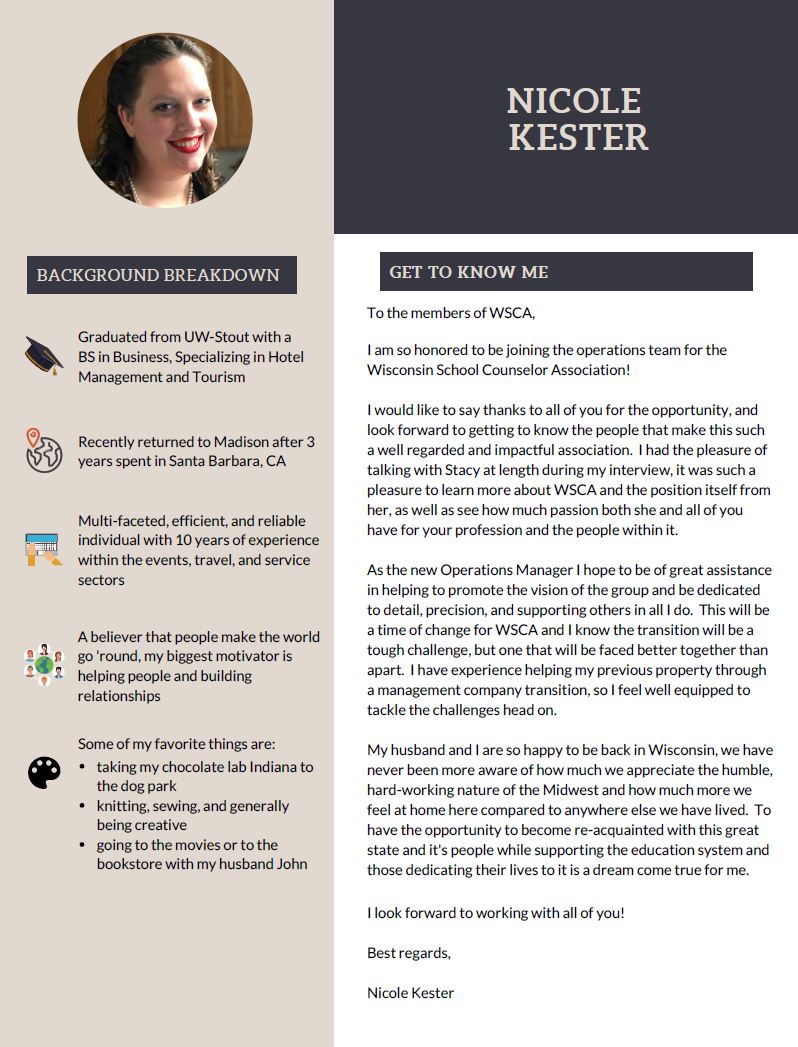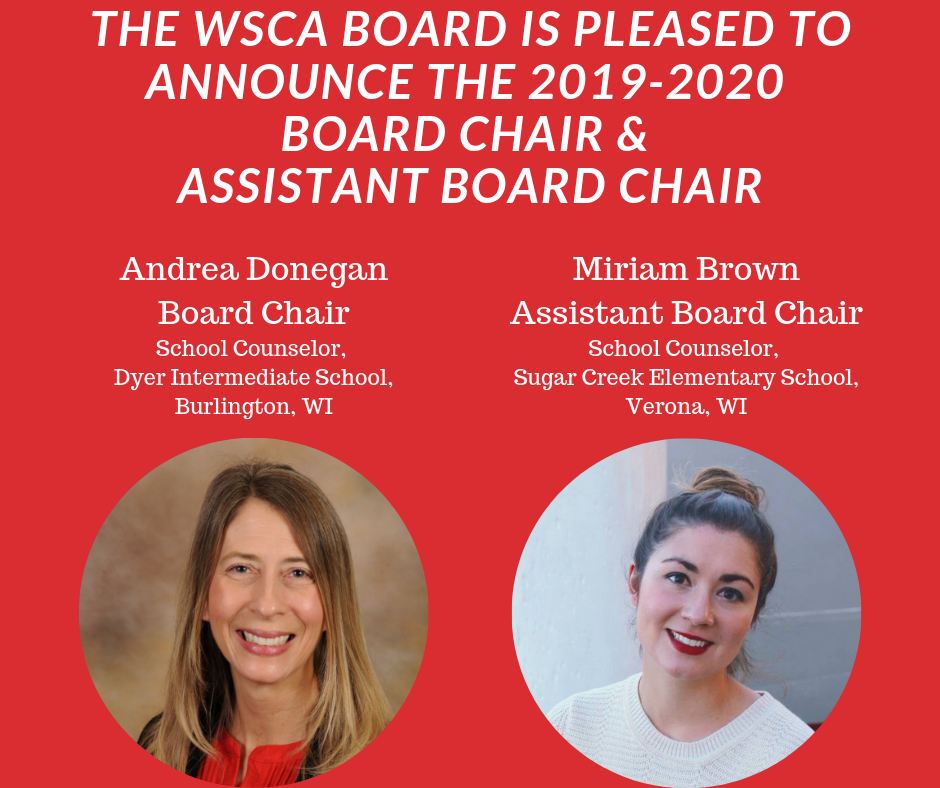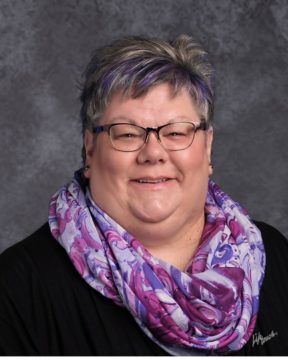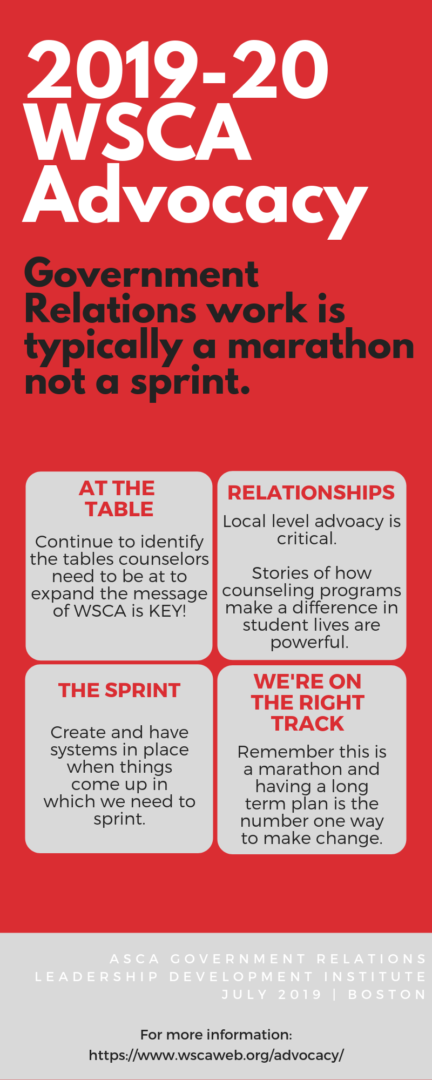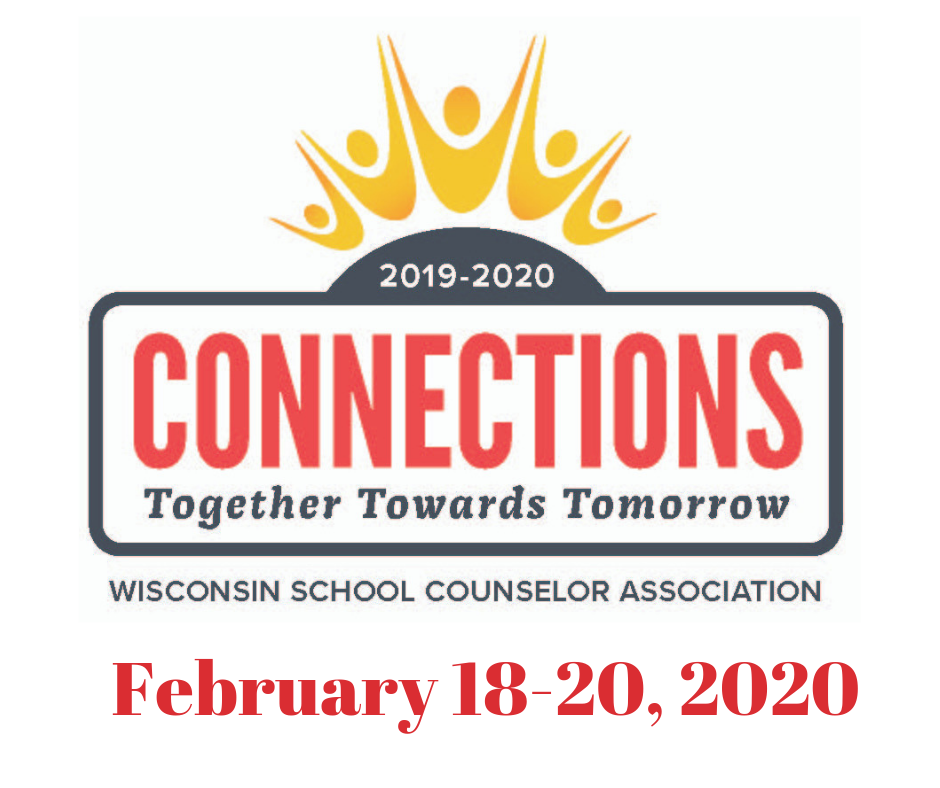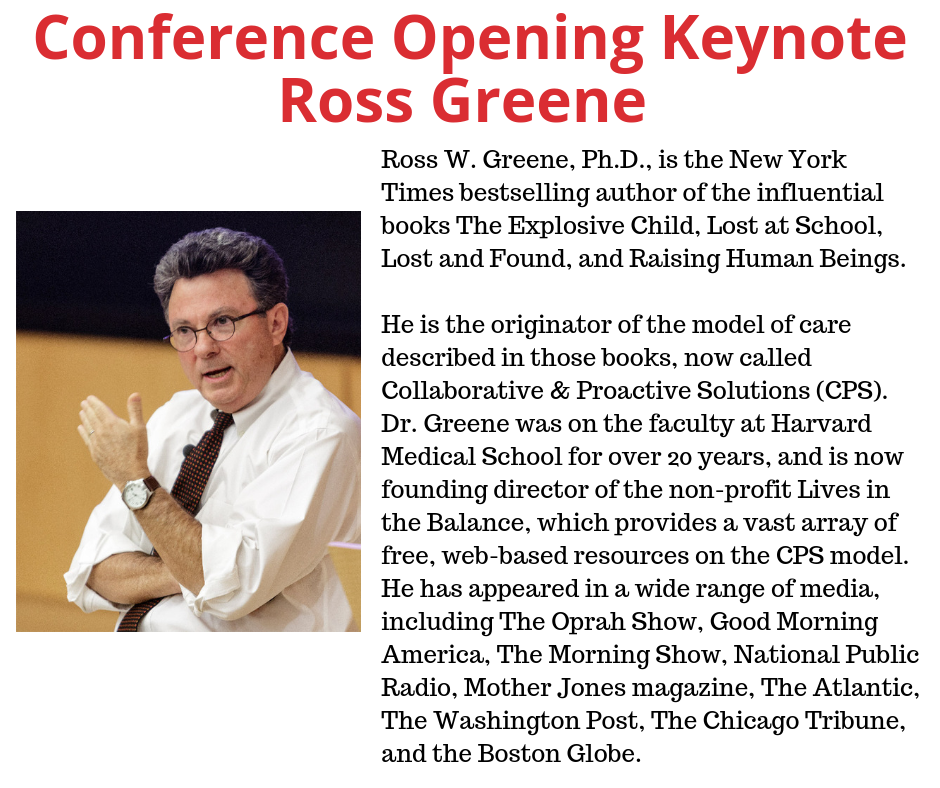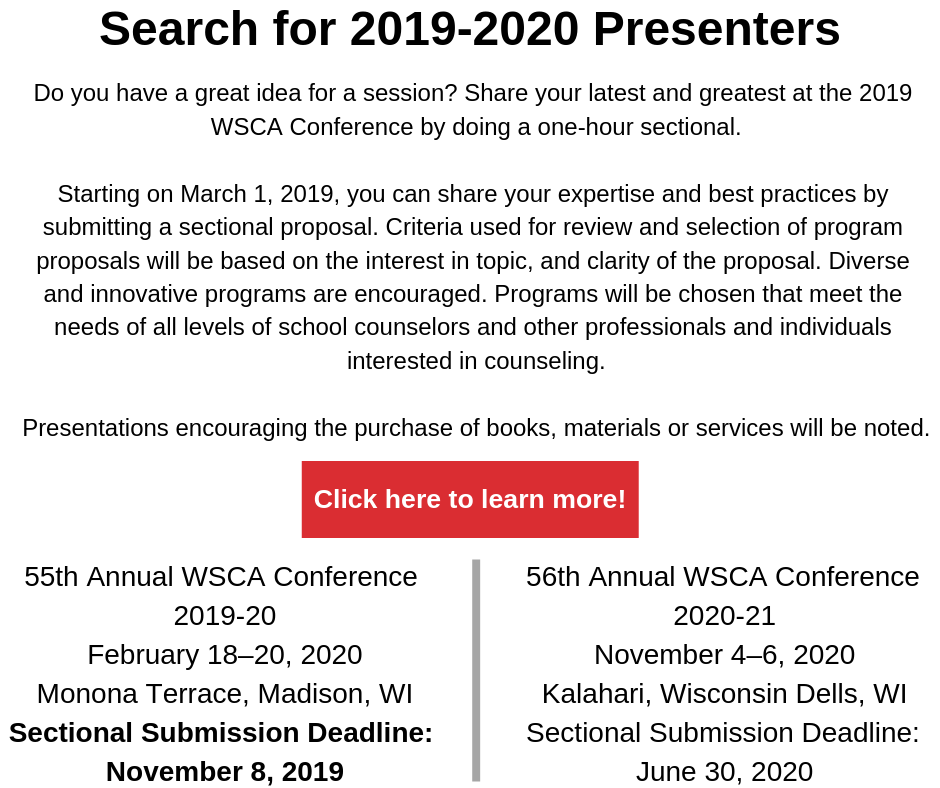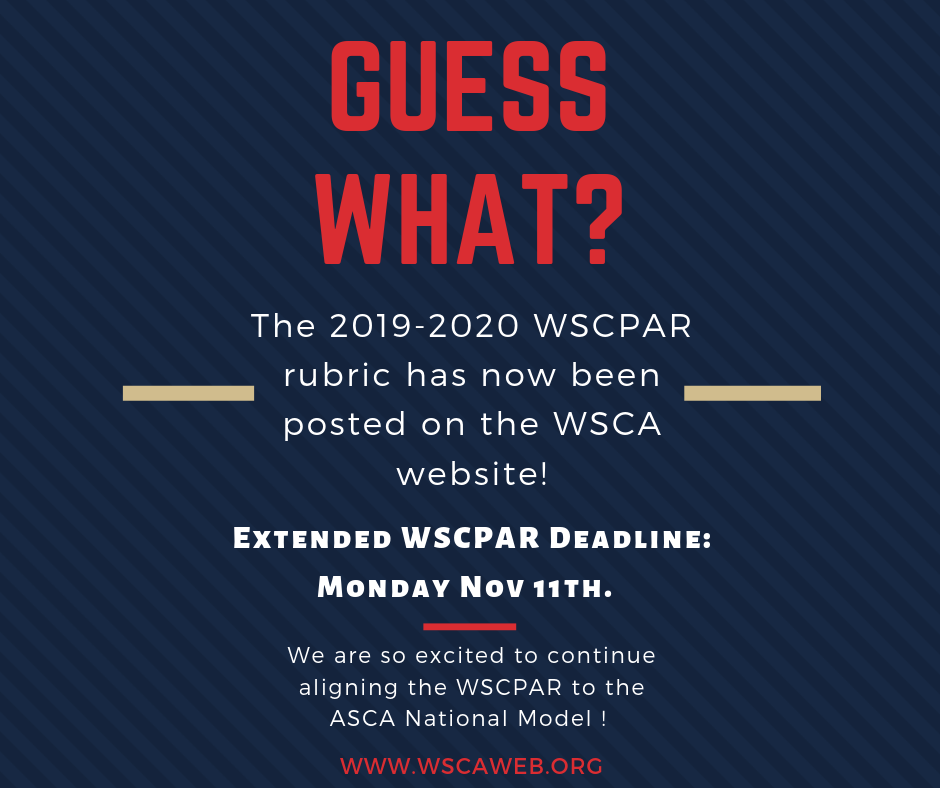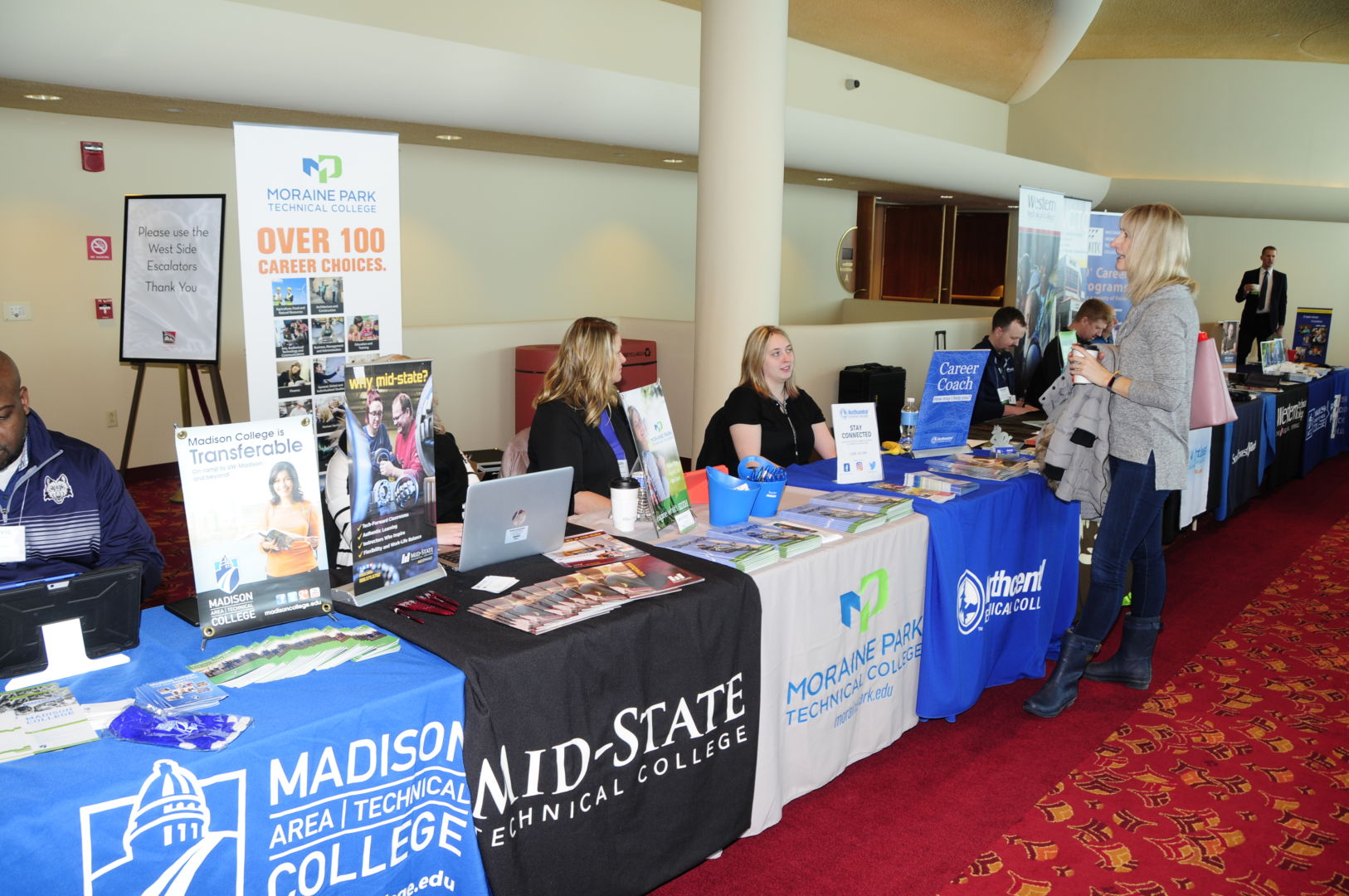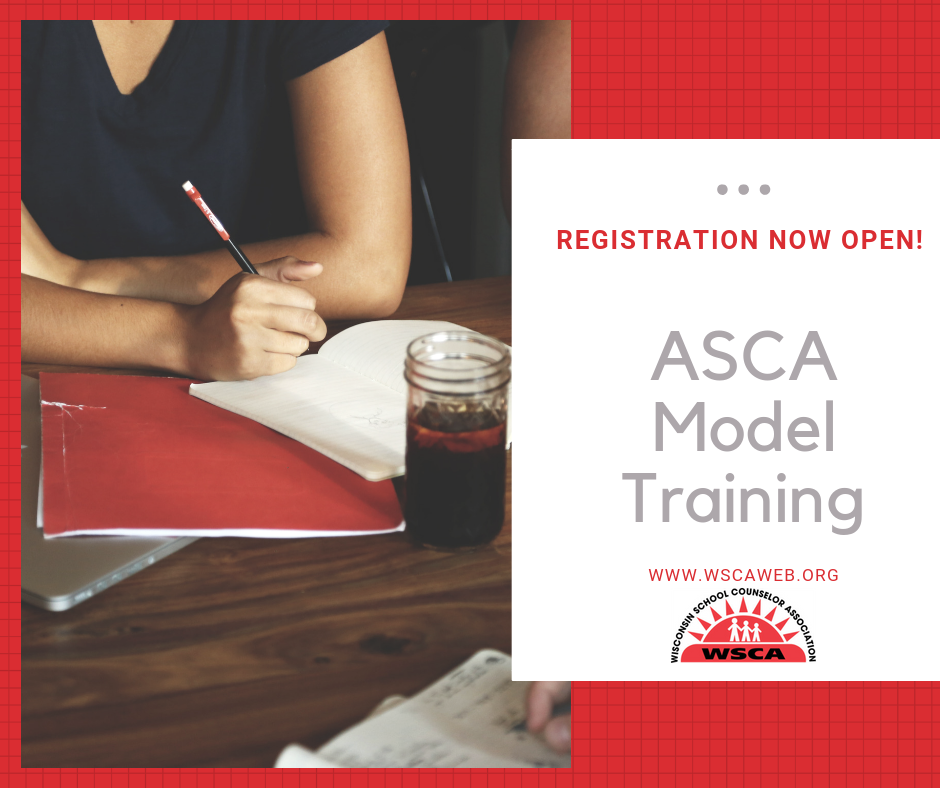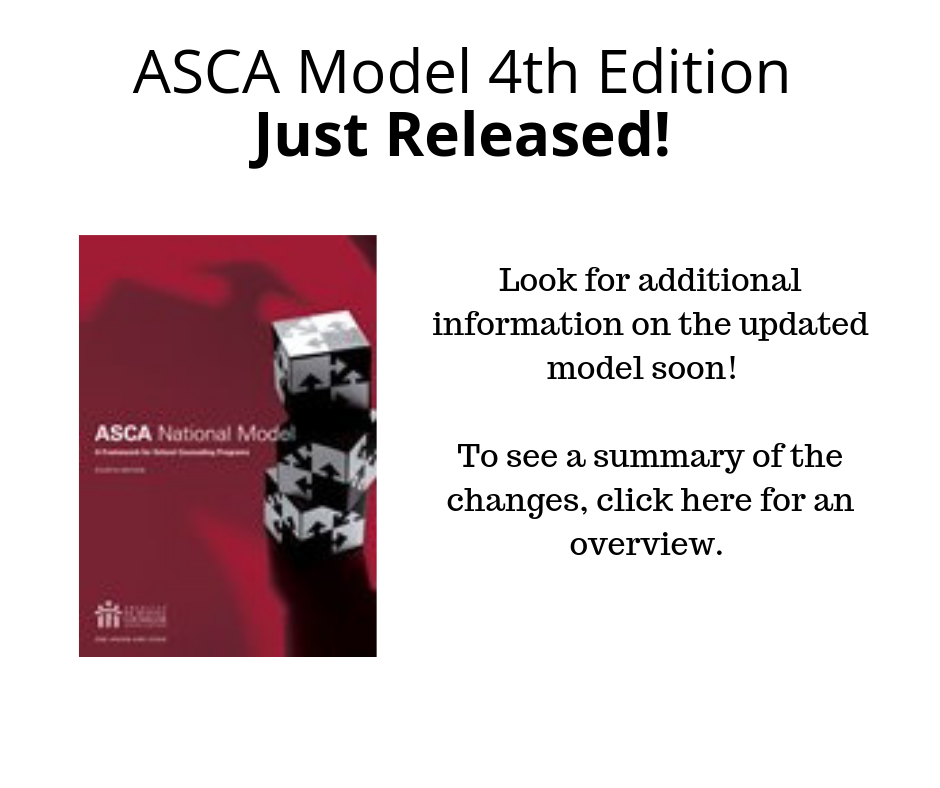July/August 2019

In This Issue:
A Message from ED: WSCA Transitions
A Message from the WSCA Board
Feature Article: ASCA Model Implementation Journey, Single Counselor School
Legislative Update – 2019-2020 WSCA Advocacy
2019-2020 Conference: Ross Greene – Opening Keynote! & Call for Presenters
WSCPAR Updates
WI Technical College – Parnering with technical colleges to obtain student outcome data
ASCA Helpful Tips – 2019-2020 ASCA Model Training Dates Released
Fall Summit
WSCA Volunteers Needed
A Message from the WSCA Exeutive Director
WSCA Transitions
Stacy Eslick, WSCA Executive Director
A friend recently pointed out all the Queen Anne’s Lace in full bloom and shared this means summer is almost over. I seem to have lost the months of May, June, July and now August this year. As a child summer used to seemingly last forever in southwestern Wisconsin. Now time moves at lightning speed and it never seems like there is enough to do all the things that were on my “summer projects list”.
WSCA has had many changes and transitions the past few months which are both exciting and challenging. We have appreciated your ongoing patience as we work through all the logistics of moving offices, training new staff, and updating business operations which will better serve WSCA in the long term.
Wait, what, new office, staff? We are excited to share that WSCA has made a major change with the decision to hire our own administrative staff and lease office space instead of contracting with an Association Management Company for these services. What does this mean for our members?
WSCA now has a dedicated staff person to support our association for 32 hours per week instead of 10-15. WSCA is thrilled to have hired Nicole Kester as the WSCA Operations Manager. She has a diverse set of skills that are needed for this job as well as being a terrific problem solver to best help the association. Please see Nicole’s introduction below, she is excited to work with all of our members.
WSCA is now leasing an amazing office and meeting space through the Wisconsin School Music Association in Waunakee (suburb north of Madison). This will allow our leadership team to have meetings at our office as well as host professional development and other networking opportunities in the Madison area.
The WSCA team hopes you are all able to enjoy a few last days of summer before jumping full time into preparing for your students arrival in a few weeks.
Stacy
A Message from the WSCA Board of Directors
Hello WSCA Family, my name is Donna Okray, School Counselor and newly appointed member of the WSCA Board of Directors. My career as an educator began in 1989 when I graduated from the University of Milwaukee-Wisconsin and taught in the Milwaukee Public Schools District at Milwaukee School of Languages. I furthered my education by obtaining a masters degree in Educational Leadership and School Counseling. Since 2000, I have been a practicing School Counselor across grades 6-12 in the Milwaukee Public Schools District as well as the Brown Deer School District. Currently I serve as a School Counselor at Lincoln Center of the Arts within Milwaukee Public Schools.
I enjoy participating in professional develoment opportunities that help me grow on a personal and professional level. While working in the BDSD as a school counselor and the PBIS Internal Coach, I had the honor of presenting at the 2011 PBIS Leadership Conference with the BDMS Tier 1 Team regarding Tier 1 facilitation and buy-in. We were awarded PBIS School of Merit in 2011 and 2012. Through the American School Counselor Association (ASCA U) I met the requirements for School Counselor Data Specialist (2015-2020). Recently I voluntarily participated in the professional development opportunity that WSCA offered through the WSCA Leadership Development Academy Cohort 1. As a member of the WSCA Leadership Academy I was able to learn about the governing style, policy, and procedures adopted by the WSCA Board as well as meet and learn from school counselors throughout the state of Wisconsin. The positive, interactive and supportive environment I experienced through WSCA Leadership Academy lead me to seek a position on the WSCA Board of Directors. Being a member of the WSCA Board of Directors is an honor and responsibility I will fulfill with integrity and joy.
ASCA Model Implementation Journey
By Marianne Matt
Marianne is a school counselor at Capital High School and WSCA Director of Publications.
I’ve set my sites on RAMPing my school counseling program. In order to do this I’ve been to workshops and trainings and sectionals and heard school counselors sing the praises of the ASCA National Model but I have only just started to embrace what the National Model can do for my school counseling program. I offer my journey as introspection and possibly inspiration.
I am the only school counselor at a small, choice high school in the Madison Metropolitan School District. Capital High just completed our third year as a high school (with two campuses) that has traditionally been labeled as alternative. We are working towards becoming a deeper learning school with graduation by portfolio defense and graduation via competency and hope that these systems are fully operational come fall.
I had little exposure to the model when I went through graduate school. I had to buy the ASCA National Model: A Framework for School Counseling Programs for one of my classes but we did not really use it other than as a reference. In my first year my school district brought in ASCA Model trainers to help us to begin to use the National Model. In my five years as a school counselor we have practiced creating annual agreements and setting goals and tracking these goals. For three years I set goals and wrote agreements that my principal was aware of but I did not have her sign. Not seeing results and feeling like I kept spinning my wheels in day-to-day tasks, I finally re-read the ASCA National Model: A Framework for School Counseling Programs and started to really look at the ASCA National Model Implementation Guide.
Working within the framework of the ASCA National Model has offered me the opportunity to rely on the framework as the foundation of my school counseling program as well as providing me with the structures to do so. While I have certainly been doing good work without using the ASCA National Model I was not tracking and providing results of my work in a way that offered insight around what adjustments need to be made but also the impact of the work on students.
What I learned and am still learning is that implementing the National Model takes time and, in fact, could take several years. This was a revelation to me as a former classroom teacher who adjusted daily and quickly to meet the needs of my students. Allowing myself to step back from the daily tasks and really look at my work as a program has opened the door to using the ASCA National Model. I have adopted the yearly calendar so that my work is organized and timely. I have started to use the core curriculum action plan in place of a scope and sequence. I have worked to implement pre/post surveys in all my classroom presentations and small groups. I crafted my SPO so that the data collected provides evidence around my school counseling programming. My PPG focused on implementing the ASCA National Model and my learning around how to go about this. I have started to report out on my results not only to my principal but also to key leadership groups in the school and district.
As I geared up for summer learning and fun I realized that I also had much work to do to prepare for the fall. Utilizing all the tools offered through the National Model will continue to provide me with a solid framework as I plan for next year. My journey likely won’t be completed any time soon but I have the assurance that I am on the right path each time I revisit Framework.
Partnering with your local Technical College to collect student data
By: Katie Graff, Assistant Director of College Access Partnerships at Gateway Technical College
Gateway Technical College partners with our local high schools in Racine County, Kenosha County and Walworth County to provide dual credit opportunities to our high schools. Many times, students are able to graduate from Gateway before they graduate from high school. Gateway is proud to partner with each of our school districts and share the success stories with our school counselors, teachers, administrators, parents and communities as students build their academic and career plans, giving them a clear picture of the benefits of early enrollment.
Gateway is able to provide data to each high school regarding the success of these programs. A few examples of the data that is available includes:
Tuition dollars saved and credits earned from Transcripted Credit Agreements for students at each high school.
Percentage of high school students who direct enroll at Gateway Technical College one year, two years and three years out of high school.
Youth Apprenticeship information including yearly earnings and average hourly wages.
Additionally, Gateway Technical College is able to share our graduate follow up study with each of our high schools to showcase the solid employment status, salary levels, job location and satisfaction with training by program for our previous year’s college graduates.
For example, Elkhorn Area High School partners with Gateway through a variety of dual credit opportunities. In the 2017-2018 academic year, Elkhorn Area High School enrolled 496 students in a Transcripted Credit course. Students saved $195,049.54 in tuition by participating in the dual credit courses at their high schools. On average, students that participate in Elkhorn Area High School’s Youth Apprenticeship program in 2017-2018 made $10.18/hour. Students are able to start their academic and career path while in high school through a variety of dual credit opportunities, and continue on at Gateway after high school. A total of 25.28% of the Elkhorn Area High School graduating class of 2017 direct enrolled at Gateway one year after graduating high school. Students who will continue their education at Gateway will have the opportunity to graduate from a career and technical education program that will lead directly to employment. Gateway’s 2016 graduates who reported they were employed full-time made on average $18.72/hour six months after graduating from Gateway.
For more information, please visit: gtc.edu/earn-credit
Success Story: https://www.gtc.edu/article/good-news/student-begins-career-and-earning-potential-early-through-gateway


